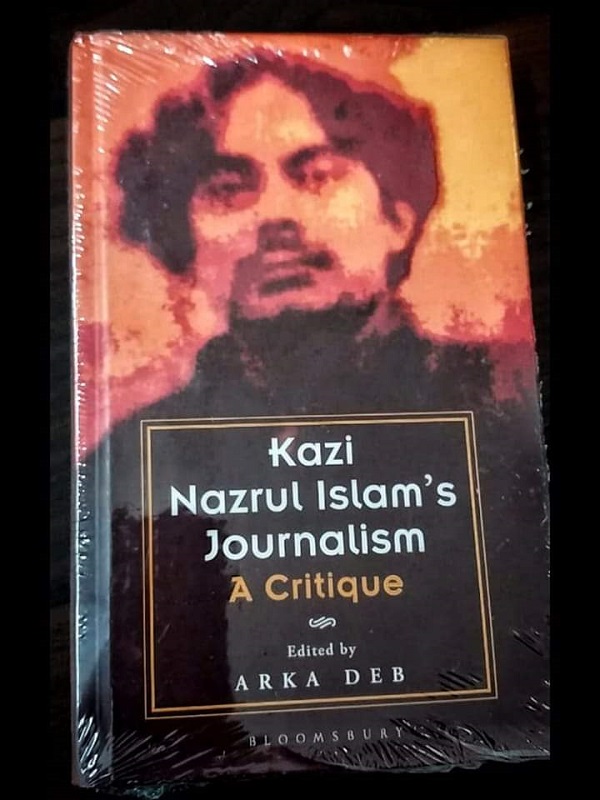Rajasthan: Centenarian freedom fighter passes away at 102 in Nathdwara
Somatiya had been unwell for some time. He is survived by one son and five daughters.
The book deals with the iconic Bangla poet’s career in journalism spanned over 22 years. In 2022, he wrote an editorial Dhumketur Path in Dhumketu, a popular magazine where he demanded complete freedom for India.

Khasi Nazrul Islam's is a star attraction at International Kolkata book fair as it tells many unknown facts related to his life [Photo SNS]
Kazi Nazrul Islam’s Journalism: a critique published by Bloomsbury is a star attraction at the International Kolkata Book Fair.
Edited by Arka Deb, a well known journalist, the book deals with many unknown facts associated with Kazi Nazrul’s life.
Advertisement
Few people know that apart from writing poetry, composing songs and imparting training to the budding vocalists for All-India Radio, Nazrul was a serious journalist and was the pioneer in journalism on agriculture.
Advertisement
Nazrul’s career in journalism spanned over 22 years though between 1930 and 1940 he had concentrated more on composing songs of different types following the untimely death of his elder son Bulbul.
In 2022, he wrote an editorial Dhumketur Path in Dhumketu, a popular magazine where he demanded complete freedom for India. Dhumketu started its journey on August 11, 1922.
It may be mentioned that in the March edition of Sandhya in 1905 Bramhabandhab Upadhaya had demanded that India should be given full freedom. Bramhabandhab was a close friend of Swami Vivekananda and like the latter he believed that for the next 50 years, the motherland should be the only object of worship.
Nazrul was arrested for his editorial in Dhumketu. In Kolkata he got the status of a first-class prisoner. When he was shifted to Hooghly jail he saw the pathetic condition of fellow prisoners. He wrote Rajbandir Jabanbandi, an essay where he mentioned that his trial was held in the court of eternal time and he was not answerable to the British judge.
In 1925, Labour Swaraj Party was set up within Congress at the initiative of Kutubuddin Ahmed, Hemanta Kumar Sarkar and Samsuddin Hossain. Nazrul wrote the manifesto.
As the organ of the party, Nazrul, along with Muzaffar Ahmed, started Langol, a pioneering work in agro journalism. He visited Maimansingh and Kumillah, now in Bangladesh, and different areas in West Bengal and interacted with the farmers and saw their plight. His well-known poems Samyabadi, Sabyasachi were printed in Langol. Langol later came to be known as Ganabani from August 12, 1926.
The Intelligence Branch of British Police used to keep a tab on Nazrul and collected these magazines and kept with them.
Mr Deb was assisted by budding scholars, including Sneha Chattopadhyay, a brilliant student of Presidency College, who died recently at an early age.
Advertisement